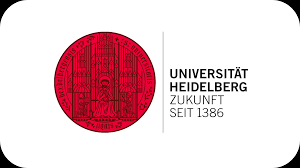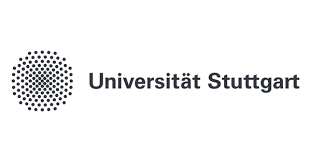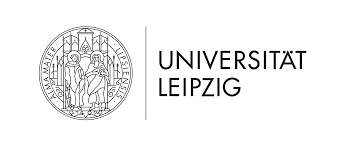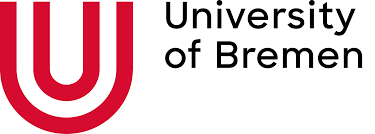Best Universities to Consider in Germany
Germany is widely recognized for having some of the best universities in the world. The country boasts over 400 higher education institutions, including more than 100 universities and numerous universities of applied sciences. Degrees from German universities are globally respected, and the quality of education provided is exceptional when compared to many other countries.
German universities offer a wide range of undergraduate, postgraduate, and professional programs. Study areas include engineering, computer science, natural sciences, social sciences, business, humanities, law, and medicine. These top-ranked academic institutions provide a broad spectrum of subject options and also offer unique, innovative degree programs. Along with their excellent academic offerings, many German universities provide scholarships and financial assistance for Nepalese and other international students. Education in Germany not only enhances your academic knowledge but also equips you with practical, career-ready skills.
These top universities, technical institutions, business schools, and medical faculties enjoy strong global reputations. Many of them consistently rank among the best schools for international education.
Once you decide to study in Germany, the next step is selecting a college or university that suits your goals. With so many excellent options, choosing the right one can feel overwhelming. Germany is a fantastic destination for earning your Bachelor’s, Master’s, or PhD from one of the world’s most respected education systems.
In addition to academic excellence, UK universities also provide scholarships for international students, making it more accessible for students from Nepal and other countries. These scholarships help reduce financial barriers and make studying in the UK an attractive option for many students.
Factors to Consider While Choosing Top Universities in Germany:
- Language of Instruction – While many programs are offered in English, some are still taught in German. Make sure the language of the program matches your comfort and ability.
- Type of Institution – Are you looking to study at a traditional research university or a university of applied sciences focused on practical training?
- Type of Degree – Are you aiming for a Bachelor’s, Master’s, or PhD?
- Location – Research the city or region of the university. Are you drawn to a bustling urban center like Berlin or a quieter town like Heidelberg?
- Size of Institution – Do you prefer a large university with a wide range of services or a smaller one with a more personal environment?
- University Reputation – Investigate the global rankings and graduate employment rates of each university.
- Facilities and Resources – Consider the quality of labs, libraries, and research equipment.
- Internship and Work Opportunities – Does the university offer internships, industrial placements, or a dual-study program?
- Cost and Scholarships – Although tuition is often free or very low in public universities, check the cost of living and availability of scholarships for international students.
- Faculty and Research Strength – Review the expertise of the faculty in your field of interest. Are there professors whose work aligns with your academic goals?
- Support for Special Needs – Ensure the institution provides accommodations for students with disabilities or learning differences.
- Student Life and Extracurriculars – Look into what kinds of clubs, sports, or student organizations are available.
Some of these factors may be more important to you than others. Feel free to prioritize what matters most for your personal study experience in Germany.
Why Choose Top Universities in Germany
Germany is one of the most preferred study destinations in the world. It is highly welcoming to international students and provides a wide range of opportunities for academic and personal growth.
The universities in Germany are some of the most reputable globally. Their academic programs are carefully designed with strong emphasis on research, innovation, and practical experience. That’s why degrees from German universities are highly valued by employers worldwide.
Germany is often considered a land of opportunity, especially for international students seeking quality education at affordable costs. It is home to many top-ranked universities and offers a supportive environment for international learners. Numerous scholarships are available specifically for students from low-income countries, including Nepal.
 Germany is not just known for excellent universities but also for career opportunities after graduation. Once you’ve shortlisted the universities that interest you, the next step is to begin your application process. Keep in mind that each university in Germany may have different admission requirements. So, it’s essential to carefully check the application details on the official university websites.
Germany is not just known for excellent universities but also for career opportunities after graduation. Once you’ve shortlisted the universities that interest you, the next step is to begin your application process. Keep in mind that each university in Germany may have different admission requirements. So, it’s essential to carefully check the application details on the official university websites.
Students from non-German-speaking countries are usually required to prove their language proficiency. Depending on your program, you may need to take either a German language test (like TestDaF or DSH) or an English test (like IELTS or TOEFL) if the program is in English.
Germany does not have a single official university ranking system. You may come across rankings in educational portals or publications, but they are not issued by the government. Some universities may also choose not to participate in such rankings, which makes them less comprehensive.
However, QS World University Rankings and Times Higher Education are trusted sources to explore the global standing of German universities. In addition to rankings, the university’s reputation within your field is a key factor. The best way to assess this is by connecting with professors, alumni, or professionals in your area of interest.
Top Universities in Germany for International Students
Germany is home to some of the world’s best universities, offering a variety of top-notch programs for international students. Admission to some of these universities can be competitive, but the degrees awarded are highly respected globally.
Ludwig Maximilian University of Munich (LMU Munich)

LMU Munich is the highest-ranking university in Germany and ranks 32nd globally. Located in the heart of Munich, it was established in 1472 and offers a diverse range of courses for international students in fields such as humanities, law, natural sciences, and medicine.
Technical University of Munich (TUM)

TUM ranks as the second-highest university in Germany and 50th in the world. Founded in 1868, it is located in Munich and is renowned for its engineering, technology, and business programs. TUM is one of the best universities in Germany for international students interested in research and innovation.
Heidelberg University

Heidelberg University is the third-highest-ranking university in Germany and 64th globally. Established in 1386, it is located in Heidelberg and is Germany’s oldest university. It is well-known for its strong emphasis on research, especially in the fields of science and medicine.
Humboldt University of Berlin

Humboldt University ranks 4th in Germany and 120th globally. Located in Berlin, it was founded in 1810. The university offers a broad range of undergraduate and graduate programs in the arts, humanities, and sciences, making it a top choice for international students.
University of Göttingen

The University of Göttingen ranks 5th in Germany and 138th globally. Established in 1737, it is known for its strong research output, especially in the fields of physics, chemistry, and life sciences. It attracts international students from all over the world.
University of Mannheim

The University of Mannheim ranks 6th in Germany and 180th globally. It was founded in 1763 and is located in the city of Mannheim. Known for its excellent business, economics, and social sciences programs, it is a favorite among international students pursuing degrees in these fields.
RWTH Aachen University

RWTH Aachen University ranks 7th in Germany and 180th globally. Located in Aachen and established in 1870, it is particularly renowned for its engineering and technology programs. RWTH Aachen is a top choice for international students seeking advanced research opportunities.
University of Freiburg

The University of Freiburg ranks 8th in Germany and 190th globally. Founded in 1457, it is located in the city of Freiburg and offers a wide variety of programs, with particular strength in the sciences, humanities, and environmental studies.
University of Stuttgart

Ranked 9th in Germany and 200th globally, the University of Stuttgart is known for its engineering and technical programs. Founded in 1829, it has a strong international reputation, especially in mechanical engineering, electrical engineering, and aerospace.
University of Leipzig

The University of Leipzig ranks 10th in Germany and 240th globally. Established in 1409, it is located in Leipzig and offers a wide range of programs, with strengths in the arts, humanities, and social sciences. It is also known for its research in the areas of physics and natural sciences.
Frankfurt School of Finance & Management

The Frankfurt School is the 11th highest-ranking university in Germany and is highly respected for its finance and business programs. Established in 1957, it is located in Frankfurt and offers specialized degrees in economics, finance, and management.
University of Bremen

The University of Bremen ranks 12th in Germany and 270th globally. Founded in 1971, it is located in Bremen and is renowned for its programs in the fields of engineering, marine science, and environmental studies.
Leipzig Graduate School of Management (HHL)

Ranked 13th in Germany, HHL is known for its top business and management programs. Founded in 1898, it offers master’s and doctoral degrees in management and entrepreneurship and is considered one of the leading business schools in Germany.
University of Mannheim

The University of Mannheim is one of Germany’s premier business universities. With a strong emphasis on economics and social sciences, it is one of the top choices for international students wishing to pursue a career in business or economics.
How To Apply For Top Universities In Germany?
International applicants can choose undergraduate courses, postgraduate degrees, and short-term courses to study in Germany. You should submit your complete application package on time to be considered for admission to Germany’s top universities. German universities do not have a centralized application process. Students apply online via the university websites, and application processes may vary by state.
 While it may be a challenging task for students to do research and choose the right university, you can easily consult with the best consultancy in Nepal for Germany – Goreto Education, to get advice on German universities and colleges.
While it may be a challenging task for students to do research and choose the right university, you can easily consult with the best consultancy in Nepal for Germany – Goreto Education, to get advice on German universities and colleges.
This will help streamline the process, making it more convenient for you. Here is a general description of the admission process to German universities:
- Choose the university you’d like to attend and the program you’d like to study. You can select from a range of courses taught in German or English. Decide on the level of study, such as Bachelor’s, Master’s, or PhD programs.
- Visit the university’s website to learn about the application process. Most German universities allow you to apply online.
- Prepare for any required tests as instructed by the university, which may include language proficiency tests (such as TestDaF for German or TOEFL/IELTS for English programs) and aptitude tests.
- Gather all necessary documents for your application, as per the university’s instructions. Typically, you will need your academic transcripts, language proficiency test results, and a CV. Ensure you upload all required documents via the university’s application portal.
- You will receive an email from the admissions office informing you whether or not you have been accepted into the program.
- Explore scholarship opportunities available for international students and apply if eligible.
- If you’re applying to more than one university, follow the same process for each to maximize your chances of admission.
- Once accepted, you must apply for a student visa if your program lasts longer than six months. You will also need to apply for a residence permit for study purposes upon your arrival in Germany.



